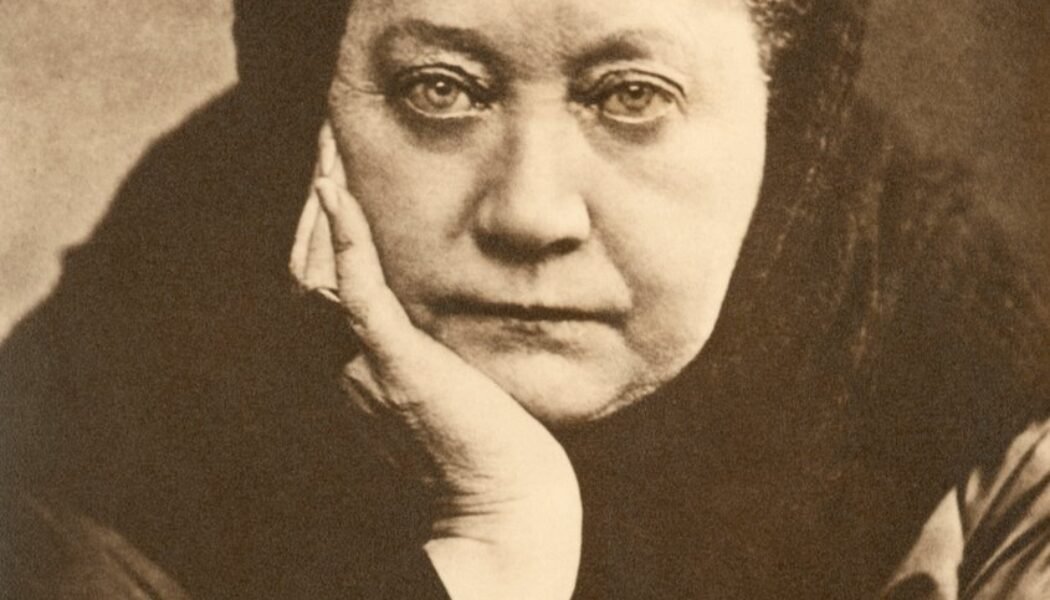Every year on May 8, followers across the globe observe White Lotus Day, commemorating Helena Petrovna Blavatsky, a figure as extraordinary as she was controversial. Blavatsky, who died in 1891, is remembered as a spiritual leader and co-founder of the Theosophical Society, an organization that sought to establish a universal brotherhood through teachings she claimed were passed down by mystical masters from the Himalayas.
Known affectionately as “HPB” by her devotees, Blavatsky’s legacy remains a powerful force, with theosophical movements maintaining a global presence of more than 1,000 lodges and centers, serving a membership exceeding 25,000. Her influence, however, extends far beyond formal organizations, having sparked the late 19th-century esoteric spiritual revival that swept across Europe and the United States. Blavatsky’s writings helped ignite Western fascination with Eastern religions, introducing ideas such as karma and reincarnation, though her interpretations often romanticized these traditions.
A Journey into the Occult
Born into an aristocratic family in what is now Ukraine, Blavatsky developed an early interest in the occult. At 18, she fled an arranged marriage, setting off on a 25-year journey across five continents in search of spiritual knowledge. This mysterious period in her life, referred to as the “veiled years,” remains largely undocumented, but Blavatsky claimed to have encountered spiritual teachers—known as mahatmas—who imparted esoteric wisdom that would form the core of her teachings.
While some scholars remain skeptical of her accounts, questioning the existence of these ascended teachers, most theosophists continue to revere them as central figures in their spiritual framework. Blavatsky’s apprenticeship with these teachers culminated in 1880 when she and her companion, Col. Henry Steel Olcott, became among the first Westerners to publicly take the five vows of Buddhism, solidifying their role as pioneers in the transmission of Buddhist and Hindu concepts to the West.
Blavatsky’s body of work, particularly Isis Unveiled, The Secret Doctrine, and The Key to Theosophy, remains foundational to esoteric literature. Her writings expound a philosophy that blends elements of ancient Greek, Hindu, and Buddhist thought, teaching that the universe emanates from an impersonal divine source and that human evolution is ultimately a spiritual journey.
A “Wisdom Religion” for All
Blavatsky envisioned theosophy as a universal “wisdom religion,” one that could reconcile philosophy, science, and religion to uncover the hidden laws of the cosmos. According to theosophical belief, initiates could access these secrets through psychic abilities, such as entering the so-called Akashic records, an ethereal compendium of all knowledge.
In 1875, she established the Theosophical Society in New York, which at its height boasted over 40,000 members. The society’s objectives—to form a nucleus of universal brotherhood, encourage comparative study of religion, and investigate humanity’s latent powers—resonated with a growing audience disillusioned by traditional religious dogma.
Blavatsky’s teachings also promoted radical egalitarianism, transcending racial, religious, and gender divisions. The society’s motto, “There is no Religion Higher than Truth,” captures the movement’s ideal of unity, a principle that continues to guide its efforts today.
In the Shadow of Empire
Blavatsky’s rise coincided with a period of spiritual ferment in the West, as advances in science and technology challenged traditional Christian beliefs. Victorians, grappling with what has been called the “Age of Doubt,” increasingly turned to alternative spiritual paths. Blavatsky’s theosophy found fertile ground in this context, drawing upon the growing Western interest in the mystical East, fueled by translations of ancient Indian texts and popular works on Buddhism.
Though Blavatsky’s journal The Theosophist aimed to showcase the contributions of her South Asian peers, her portrayal of India as a repository of timeless wisdom reflected a romanticized vision. Blavatsky’s writings presented India’s spiritual traditions as superior to the materialistic West, a perspective that echoed the Orientalist tropes prevalent in 19th-century Europe.
Nevertheless, Blavatsky spent significant time in India and often voiced sharp criticism of British colonial rule, particularly in her travelogue From the Caves and Jungles of Hindostan. Her anti-colonial sentiments, however, were selective—she did not extend the same critique to Russian imperialism in Central Asia, a contradiction that complicates her legacy.
A Legacy of Influence and Controversy
Blavatsky’s influence on Western spirituality is undeniable. Figures ranging from psychologist William James to Indian nationalist Mahatma Gandhi were drawn to her ideas, while writers like George Bernard Shaw and inventors such as Thomas Edison incorporated elements of theosophy into their work.
However, Blavatsky remains a polarizing figure. Critics have questioned her claims of mystical abilities and the authenticity of her teachings. Nonetheless, the esoteric movement she helped to launch continues to shape contemporary spiritual discourse, with theosophy competing for attention among newer religious movements.
As Kurt Vonnegut once described her, Helena Petrovna Blavatsky may well be remembered as the “founding mother of the occult in America.” Today, on White Lotus Day, her life and work are honored by a global community that continues to explore the profound mysteries she dedicated her life to unraveling.
Source: The Conversation

